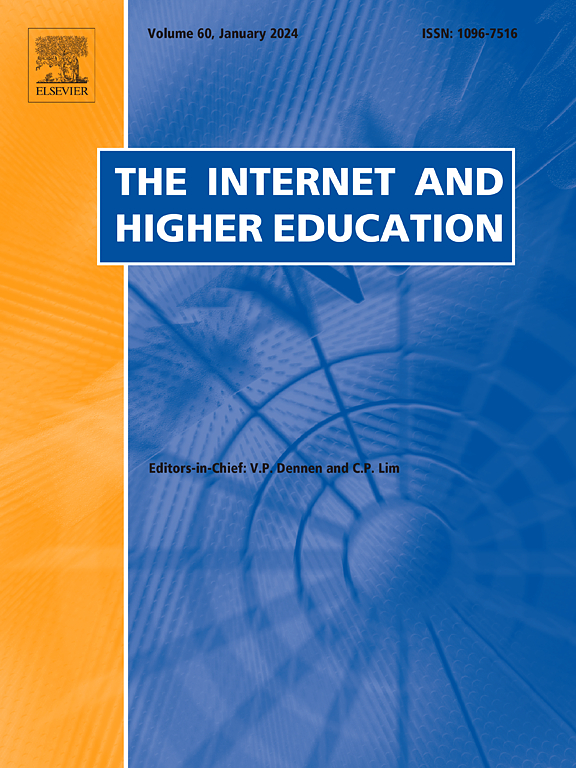从入门到精通:将人工智能整合到混合学习中,以实现公平、包容和易于理解的音乐理论教育
IF 6.8
1区 教育学
Q1 EDUCATION & EDUCATIONAL RESEARCH
引用次数: 0
摘要
虽然音乐教育被认为是所有人的一项基本权利,但在接受教育方面的差距仍然普遍存在。学习者往往面临着家庭背景和先前经历塑造的不平等机会。本研究探讨了人工智能在混合学习中的潜力,以促进包容和无障碍的乐理教育。通过在混合学习(AF-BL)中利用人工智能驱动的反馈,学生可以从量身定制的学习体验中受益,从而促进平等的成长和反思机会。来自中国某公立大学的43名学生参加了为期4周的音乐理论课程。将他们分为两组:实验组(N = 22)采用AF-BL方法,对照组(N = 21)采用传统的混合学习(C-BL)方法。结果表明,与C-BL方法相比,AF-BL方法显著提高了学习者的乐理学习效果和认知。与参与者的访谈进一步强调了AF-BL方法的包容性和可及性,指出它能够满足不同的学习需求,并为所有学生提供平等的学习机会。研究结果强调了人工智能在创造公平和包容的教育体验方面的潜力,为音乐理论教育的未来研究和实际应用提出了有希望的方向。本文章由计算机程序翻译,如有差异,请以英文原文为准。
From access to mastery: Integrating AI in blended learning for equitable, inclusive, and accessible music theory educations
Although music education is considered a fundamental right for all, disparities in access remain widespread. Learners often face unequal opportunities shaped by their family backgrounds and prior experiences. This study explored the potential of AI integration in blended learning to promote inclusive and accessible music theory education. By utilizing AI-driven feedback in blended learning (AF-BL), students benefit from tailored learning experiences that promote equal opportunities for growth and reflection. A total of 43 students from a public university in China participated in a 4-week music theory course. They were divided into two groups: an experimental group (N = 22) utilizing the AF-BL method, and a control group (N = 21) following the conventional blended learning (C-BL) method. The results demonstrated that the AF-BL method significantly improved learners' music theory learning outcome and perceptions, compared to the C-BL method. Interviews with participants further highlighted the inclusivity and accessibility of the AF-BL approach, noting its ability to cater to diverse learning needs and provide equal learning opportunities for all students. The findings highlight the potential of AI in creating equitable and inclusive educational experiences, suggesting promising directions for future research and practical applications in music theory education.
求助全文
通过发布文献求助,成功后即可免费获取论文全文。
去求助
来源期刊

Internet and Higher Education
EDUCATION & EDUCATIONAL RESEARCH-
CiteScore
19.30
自引率
4.70%
发文量
30
审稿时长
40 days
期刊介绍:
The Internet and Higher Education is a quarterly peer-reviewed journal focused on contemporary issues and future trends in online learning, teaching, and administration within post-secondary education. It welcomes contributions from diverse academic disciplines worldwide and provides a platform for theory papers, research studies, critical essays, editorials, reviews, case studies, and social commentary.
 求助内容:
求助内容: 应助结果提醒方式:
应助结果提醒方式:


